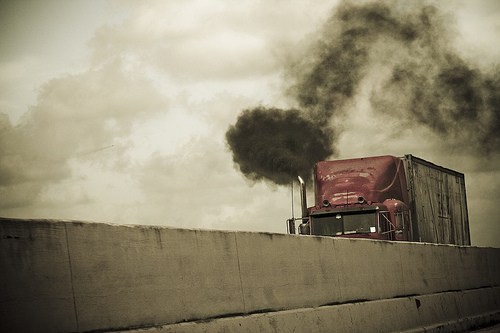Sin categoría

The European Parliament has approved this Wednesday by 373 votes in favor, 285 against and 16 abstentions, a notable cut to the pollution for which the trucks are responsible, which should reduce their CO2 emissions by 20% in 2025, and 35 % in 2030 in relation to the 2019 level. The measure represents a step forward so that for the first time the European Union will stop the emissions of trucks, until now exempt from regulations that would impose borders. For final approval, the rules must be discussed by the Member States and re-voted by the European Parliament.
Trucks represent only 5% of the vehicles that circulate on European roads, but are responsible for 22% of the total emissions from this type of transport. The new norm tries to shorten in part this abyss by eliminating from the air that Europeans breathe a good portion of polluting particles. Brussels talks about a reduction of carbon dioxide emissions of 54 million tons between 2020 and 2030, the equivalent of all those launched in a year Sweden, a country of 10 million inhabitants.
The European Commission proposed in May some thresholds of 15 and 30% for 2025 and 2030 respectively, which now the European Parliament has hardened. Brussels has insisted that the change will be beneficial, not only in the environmental aspect, but also for transport companies, many of them SMEs, given that they will spend around 5,000 euros less per year in fuel, a section that represents 30% of your invoice.
The automotive industry does not see it clearly. He does not deny that there is a transformation in progress, but he fights so that the bar is not so high. “Increasing the objectives increases the risks given that the regulation goes beyond what is technically feasible in this segment of vehicles,” says Sigrid de Vries, general secretary of CLEPA, the European employer association of automotive suppliers. His offer has been light years ahead of the decision of the MEPs. The manufacturers were in favor of a drop in emissions of 7% in 2025 and 16% in 2030.
The ACEA, the organization that includes the seven largest European truck manufacturers DAF, Daimler, Iveco, MAN, Scania, Volkswagen and Volvo, has shown its concern for what it estimates, a too ambitious leap. The entity already considered the figures of the European Commission difficult to implement, reason why it has described the new levels of “excessively aggressive”. The association fears its effects for competitiveness, and trusts that member countries will retouch those objectives to the downside. “MEPs seem to be unabashedly ignoring the fact that the electrification potential of the truck fleet is much less than that of cars, due to problems such as extremely high initial costs, limited autonomy, insufficient infrastructure, in particular along the motorways, and also the reluctant customers, “criticized its secretary general, Erik Jonnaert.


